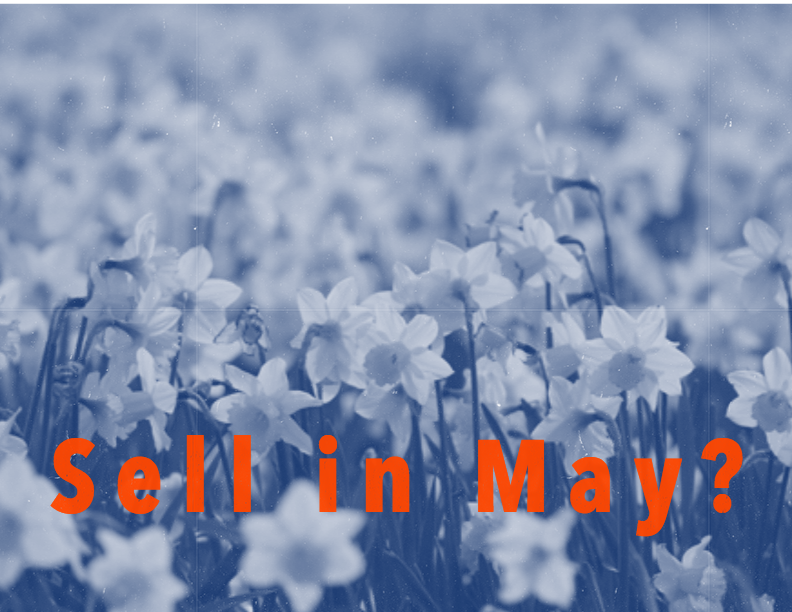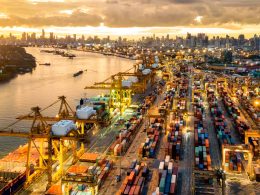Crude oil, we use $80 a barrel as sort of our benchmark. In other words if we are buying an oil company we say if this company can make money at $80 it's a buy. If they can't it's not because we believe oil prices will go to be around that level or higher going forward. And the reason of course emerging markets are taking a bigger share of oil imports.
In 2005 emerging markets took 36 percent, now a total of 47 percent because this was 2009 figures. I think it's surpassed the 50 percent level. And of the five largest importers of oil in the world today, three are emerging markets. And of course you can see China and India oil imports continue to move upwards. Iron ore and other minerals, in China they continue to import more and more iron ore.
So this is the pictures in terms of where we are. The other opportunities we see are in the frontier markets. These are the little known markets that some people dare not to enter.
I remember someone said that emerging markets is defined as a market from which you may not emerge in an emergency. And that's probably true of a lot of these frontier markets, but it's amazing to us that we now have over $1 billion in frontier markets funds. And we've had absolutely no trouble in getting invested and also meeting redemptions when they come.
So you see in Eastern Europe, for example, Bulgaria, Croatia, Slovakia, Slovenia, Romania. We have a big office in Romania. By the way we run a $3 billion fund for the Romania government. And I remember when we first went into Romania our analysts were a little concerned because you know who comes from Romania, don't you? Dracula.
Dracula actually is based on a real life hero in Romanian history, Vlad the Impaler. He was the leader against the Turks. And in order to scare the Turkish soldiers he impaled all his prisoners and put them along the border. And of course he got this bloodthirsty idea, and then Bram Stoker picked up on some German stories about this bloodthirsty ruler and made up - actually Bram Stoker never visited Romania. Did you know that? He wrote the Dracula story, but he never visited the country, anyway, very nice country, beautiful country, nice people.
Middle East we have [moments] in the UAE and Dubai, Saudi Arabia, Kuwait, Lebanon. In the Latin American area we're in Peru, in Ecuador, Jamaica, Panama and so forth. In Africa stake actually right now Nigeria is our biggest country weight in the frontier funds, but then you have a whole bunch of other countries.
And of course in Asia you've got countries like Bangladesh, Sri Lanka. We're just going to be opening in Laos. Laos has a small stock exchange that they're starting. So there's a lot happening in these markets.
Just to give you an idea of the potential, this is the continent of Africa. And this is the next slide. Someone tried to fit the land area of China, US, India, Mexico, Peru, France, Spain, Papua New Guinea, Sweden, Japan, Germany, Norway, Italy, New Zealand, the United Kingdom in the continent of Africa. And they succeeded.
Africa is huge. It's an incredible resource base, and by the way not only mineral resources and oil resources, but people resources, which I think a lot of people forget about.
And if you look at the market capitalization of the frontier markets of course it's tiny compared to emerging markets and developed markets, average daily turnover also very, very small, but the number of listed companies is high. And what that tells you is that there are lots of cheap stocks because market capitalization is low, number of stocks high. That means the market capitalization of these companies is quite low and chances are the prices are low.
Daily turnover, however, is increasing. Back in 2003 it was about $28 billion. Now it's $2 billion today and growing.
They're at a very early stage of their development. If you look at population they represent 17 percent of the world, 16 percent of land area, but only six percent of GDP. So they've got a lot of growth potential going forward.
If you look at the compounded annual GDP growth of frontier markets it's actually faster, a little faster and not very much bigger, but a faster number than emerging markets generally. And if you look - this is really interesting. We took the 2001 to 2010 numbers for countries around the world to find the fastest growing countries, and it's amazing to me that it was Angola, China, well, China we knew about, Myanmar, Nigeria, Ethiopia, Kazakhstan, Chad, Mozambique, Cambodia, Rwanda. During that period annual average growth was over seven percent in these countries. The only country that's not a frontier market was China.
QUESTION: I want to say - I don't want to interrupt you see oh on frontier markets because I know it's one of your most interesting aspects, but we've got about ten minutes left for Q&A.
MOBIUS: Okay.
QUESTION: And I want to make sure we get that in, so if you wanted to wrap up.
MOBIUS: Let me end with this [job]. This is the emerging markets index and it shows the three major bear markets. By the way we define the bear market as a 35 percent decline, 20 percent these days nothing, the first big globalization financial crisis. Second was the dot.com Internet bust. And the last one of course was the subprime.
If you notice the distance between the high and the low of the bear market is right now with most of the areas are bull markets. If you summarize it you see that on the average since '88 bull markets went up by 423 percent and lasted an average of 69 months, while bear markets went down an average of 57 percent and lasted an average of 14 months. So, what can conclude? Bull markets last longer than bear markets. Bull markets go up in percentage terms more than bear markets go down.
So many years ago Sir John Templeton, our founder, was at a conference like this and he took questions from the audience. And one young lady got up and said, "Sir John, I just inherited some money. I'd like to know when should I invest." Sir John said, "Young lady, the best time to invest is when you have money."
And I couldn't quite figure out what he meant. And I said, well, I studied this. If you're doing systematic investment month after month, same amount you're going to be in bear markets very, very few times. Most of the time you're going to be in bull markets. Thank you very much.
QUESTION: So we have microphones in the audience. Please raise your hand, tell us where you're from and we'll get a microphone over to you, over in the back of the room at table number three to begin.











